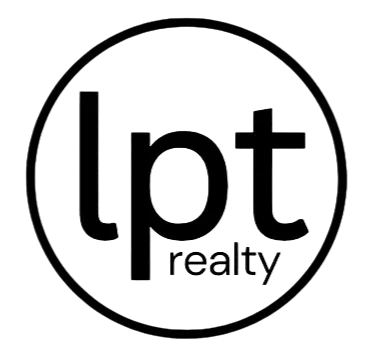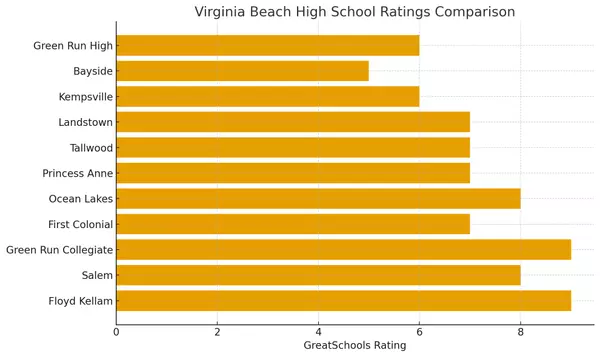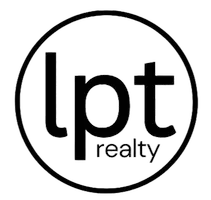FHA Loans: A Comprehensive Guide to Federal Housing Administration Loans

An FHA loan is a mortgage insured by the Federal Housing Administration (FHA). It comes with both advantages and disadvantages, which can help you decide if this loan type is right for you.
FHA Loans: A Comprehensive Guide to Federal Housing Administration Loans
FHA loans, backed by the Federal Housing Administration, are popular with first-time homebuyers and people with lower credit scores or limited savings. These loans make homeownership more accessible by offering lower down payment options and more flexible credit requirements compared to conventional loans. Let’s explore how FHA loans work, who qualifies, and why they might be a good fit for you.
What is an FHA Loan?
An FHA loan is a mortgage insured by the Federal Housing Administration, a government agency that provides lenders with a safety net in case the borrower defaults. This guarantee allows lenders to offer more favorable terms, such as lower down payments and easier credit qualification, making homeownership more attainable for those who might not meet the stricter requirements of a conventional loan.
How Does an FHA Loan Work?
With an FHA loan, the borrower must meet certain qualifications, but the requirements are generally more lenient than those for conventional loans. Borrowers can put down as little as 3.5%, and credit score requirements are typically lower. However, FHA loans require borrowers to pay mortgage insurance premiums (MIP), which protect the lender if the borrower defaults. This insurance includes both an upfront premium and an annual premium.
Who Qualifies for an FHA Loan?
FHA loans are especially appealing to first-time homebuyers or those with less-than-perfect credit. However, eligibility is not limited to these groups. Here’s a general breakdown of the qualifications:
- Credit Score: You’ll need a minimum credit score of 580 to qualify for a 3.5% down payment. Borrowers with credit scores between 500 and 579 may still qualify but will need to make a 10% down payment.
- Down Payment: FHA loans allow for down payments as low as 3.5%, making it easier for buyers who don’t have a lot of savings.
- Debt-to-Income Ratio: Lenders typically prefer a debt-to-income (DTI) ratio of 43% or less, but some may accept higher ratios depending on other factors like credit score and savings.
- Employment History: Lenders usually require proof of steady employment and income for at least two years.
Benefits of FHA Loans
-
Low credit score requirements: You may qualify for an FHA loan with a credit score as low as 500, although most lenders prefer a minimum score of 580. This is still lower than the conventional loan minimum of 620, offering more flexibility for those with less-than-perfect credit. The higher your credit score, the better your loan terms will be.
-
Low down payment requirements: FHA loans are available with down payments as low as 3.5% of the purchase price, making homeownership more accessible. While a 20% down payment is ideal for many types of loans, FHA loans allow for more manageable upfront costs.
-
Competitive interest rates: FHA loan interest rates are often on par with, and sometimes even lower than, conventional loans. This is partly due to the government backing, which reduces the lender’s risk. Your specific rate will depend on your financial profile and mortgage insurance.
-
No prepayment penalty: You can pay off your FHA loan at any time without facing penalties, whether you want to refinance or sell the home early.
-
Down payment assistance: FHA loans are compatible with various down payment assistance programs, offering additional support to make purchasing a home even more affordable.
Loan Closing Costs: What You Need to Know
When budgeting for a home purchase, it's important to account for closing costs. These are the out-of-pocket expenses you’ll need to cover to finalize your loan. They typically include lender fees, appraisals, title services, and documentation costs. Closing costs for buyers usually range between 2% to 5% of the home’s purchase price and are paid at closing. These costs may reduce the cash you have available for other upfront expenses, such as mortgage insurance premiums.
Most FHA loans follow guidelines that limit certain fees, like lender origination fees, which are capped at 3% of the loan amount for home purchases over $100,000. However, this cap does not apply to all closing costs, so it's important to review all the fees involved.
FHA guidelines also allow sellers to contribute toward the buyer’s closing costs—up to 6% of the purchase price—meaning you may be able to negotiate for the seller to cover some or all of these costs when making your offer.
For example, if you're purchasing a $300,000 home with an FHA loan and a 3.5% down payment ($10,500), you’d be borrowing $289,500. Closing costs could range between $6,000 and $15,000. FHA guidelines mean your lender can’t charge more than $15,000 in fees, and it’s possible to negotiate with the seller to cover all of those costs as part of the sale agreement.
Drawbacks of FHA Loans
While FHA loans have their advantages, there are also some potential downsides to consider:
- Mortgage Insurance Premiums: FHA loans require both an upfront mortgage insurance premium (UFMIP) and annual mortgage insurance premiums (MIP), which can add to your monthly payments. Unlike private mortgage insurance (PMI) on conventional loans, FHA mortgage insurance typically lasts for the life of the loan unless you refinance into a conventional loan.
- Loan Limits: FHA loans have borrowing limits that vary by location, based on the median home prices in your area. This can limit the size of the home you can buy with an FHA loan in high-cost areas.
- Property Requirements: The home you’re purchasing must meet certain safety and livability standards. The FHA has specific property guidelines, and your home will be appraised accordingly.
FHA Loan vs. Conventional Loan
The biggest difference between FHA and conventional loans is how they’re insured and the qualification requirements. FHA loans are government-backed, making them more forgiving for buyers with lower credit scores or limited savings. Conventional loans, on the other hand, typically have stricter credit and income requirements but can be more affordable in the long term, especially if you can make a larger down payment.
Here’s a comparison to help you decide which loan might be right for you:
| Feature | FHA Loan | Conventional Loan |
|---|---|---|
| Down Payment | 3.5% (for credit scores 580 and above) | 3-20%, depending on lender requirements |
| Credit Score | 500-579 (with 10% down), 580+ (with 3.5% down) | 620+ |
| Mortgage Insurance | Required for the life of the loan (unless refinanced) | Required with less than 20% down, but can be canceled |
| Loan Limits | Varies by location, based on FHA limits | Higher limits, based on conventional guidelines |
| Interest Rates | Often lower, but mortgage insurance can increase the overall cost | Can be lower with good credit |
How to Apply for an FHA Loan
Applying for an FHA loan is similar to applying for other types of home loans. Here’s what the process generally looks like:
- Find a Lender: Not all lenders offer FHA loans, so be sure to choose one that does. Compare offers from several lenders to ensure you’re getting the best terms and rates.
- Get Pre-Approved: Pre-approval involves submitting documentation like proof of income, bank statements, and credit reports. This step helps you understand how much you can borrow.
- Submit Your Loan Application: After you find a home, you’ll submit a formal loan application and provide the necessary documentation.
- Home Appraisal: FHA loans require an appraisal to ensure the home meets minimum property standards.
- Close on the Loan: Once your loan is approved and the appraisal is complete, you’ll close on your loan and move into your new home.
Is an FHA Loan Right for You?
FHA loans can be a great option for first-time homebuyers, those with lower credit scores, or anyone struggling to save for a large down payment. However, it’s important to weigh the costs, such as mortgage insurance premiums and potential loan limits, before making a decision. Talking to a lender and exploring all of your options will help you find the loan that best fits your financial situation and homeownership goals.
Categories
- All Blogs (51)
- Buyer Stories (1)
- Buyer tips (7)
- Buyers (3)
- Buying (2)
- Buying Advice (3)
- Buying Assistance (3)
- Credit & Debt (2)
- Down Payment (1)
- Financing (8)
- Financing Options (1)
- First Time Home Buyer (20)
- Foreclosures (1)
- Interest Rates (2)
- Loans (4)
- Military (6)
- Mortgage Interest Rates (1)
- Mortgage Rates (1)
- New Construction (1)
- Personal Finance (2)
- Refinance (1)
- Schools (11)
- Tax tips (1)
- Title & Closing (1)
- VA Loans (1)
Recent Posts











